Showing 111-120 of 405 results
 western.sare.org news using-less-water-by-stacking-conservation-practices
western.sare.org news using-less-water-by-stacking-conservation-practices Using Less Water by "Stacking" Conservation Practices
There’s a reason so many of the climate-related projects funded by Western SARE focus on water. “In Utah and much of the West, water scarcity is the number one issue when it comes to the future of agriculture,” explained Matt Yost, an Agroclimate Extension Specialist at Utah State University. “The pressure on water systems is […]
New Podcast Episode: "Building Local Food Systems in Montana"
In this episode of ATTRA's Voices from the Field podcast, NCAT Local Food Systems Specialist Maura Henn speaks with Michal DeChellis of the Alternative Energy Resources Organization (AERO) in Montana. Their conversation focuses on building resilient community food webs and connecting communities to local food solutions. DeChellis is AERO’s program manager for the Montana Food […]
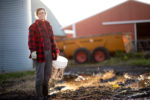 northcentral.sare.org news ncr-sares-professional-development-awards
northcentral.sare.org news ncr-sares-professional-development-awards NCR-SARE's 2023 Professional Development Awards
NCR-SARE awarded more than $1.28 million to 13 grant projects that will train agricultural educators.
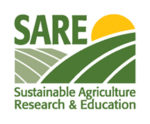 www.sare.org news sare-seeking-national-program-manager-in-support-of-food-loss-and-food-waste-initiative-in-2024
www.sare.org news sare-seeking-national-program-manager-in-support-of-food-loss-and-food-waste-initiative-in-2024 SARE Seeking National Program Manager in Support of Food Loss and Food Waste Initiative in 2024
Distributed by SARE Outreach on behalf of Southern SARE. To apply, log in to or create an account in the SARE Grant Management System using the link below. For more information, contact Southern SARE Program Director Jeff Jordan at jjordan@uga.edu. GRIFFIN, Georgia -- In 2024, the Sustainable Agriculture Research and Education (SARE) program will initiate a $10 […]
 southern.sare.org news sare-seeking-national-program-manager-in-support-of-food-loss-and-food-waste-initiative-in-2024
southern.sare.org news sare-seeking-national-program-manager-in-support-of-food-loss-and-food-waste-initiative-in-2024 SARE Seeking National Program Manager in Support of Food Loss and Food Waste Initiative in 2024
GRIFFIN, Georgia -- In 2024, the Sustainable Agriculture Research and Education (SARE) program will initiate a $10 million national food loss and food waste grants program to support projects that align with USDA activities aimed at reducing food loss and reducing food waste, getting surplus wholesome food to individuals, and developing linkages between food producers, […]
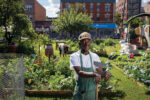 www.sare.org news new-sare-bulletin-best-practices-for-the-sustainable-urban-farm
www.sare.org news new-sare-bulletin-best-practices-for-the-sustainable-urban-farm New SARE Bulletin: Best Practices for the Sustainable Urban Farm
For decades, urban farms and community gardens have helped meet demand for fresh and local produce. Urban farming creatively utilizes limited space, conserves land and transforms vacant lots or buildings into productive greenspaces. Farming in cities can be a rewarding way for communities to grow healthy food while receiving a wide range of other interrelated environmental, […]
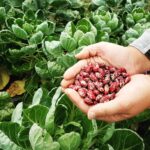 northcentral.sare.org news ncr-sares-2023-research-and-education-awards
northcentral.sare.org news ncr-sares-2023-research-and-education-awards NCR-SARE's 2023 Research and Education Awards
17 projects were awarded a total of more than $4 million through this NCR-SARE grant program for researchers and educators involved in projects that explore and promote environmentally sound, economically viable, and socially responsible food and/or fiber systems.
 northcentral.sare.org news ncr-sares-2023-graduate-student-grants
northcentral.sare.org news ncr-sares-2023-graduate-student-grants NCR-SARE's 2023 Graduate Student Awards
22 projects were awarded more than $323,000 through this NCR-SARE grant program.
New Podcast Episode: "Breeding Squash for Disease Resistance and Eating Quality"
This episode of ATTRA's Voices from the Field podcast highlights the importance of local seed development and encourages passionate farmers to begin their own seed growing journey.
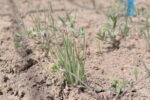 western.sare.org news restoring-rangeland-back-to-the-future
western.sare.org news restoring-rangeland-back-to-the-future Restoring Rangeland Back to the Future
Massive wildfires are on the rise throughout the West, reshaping plant communities and endangering native grasses that are a key source of forage for livestock. Reseeding with locally sourced seed is a common rangeland restoration strategy, but climate change raises an interesting question: What’s the best way to heal the land when its future environment […]